[From the scene] ‘I feel safer’: Vaccinations begin for Korea’s front-line workers
Pfizer jabs to be given to over 55,000 workers at COVID-19 hospitals by mid-March
By Kim ArinPublished : Feb. 27, 2021 - 18:43
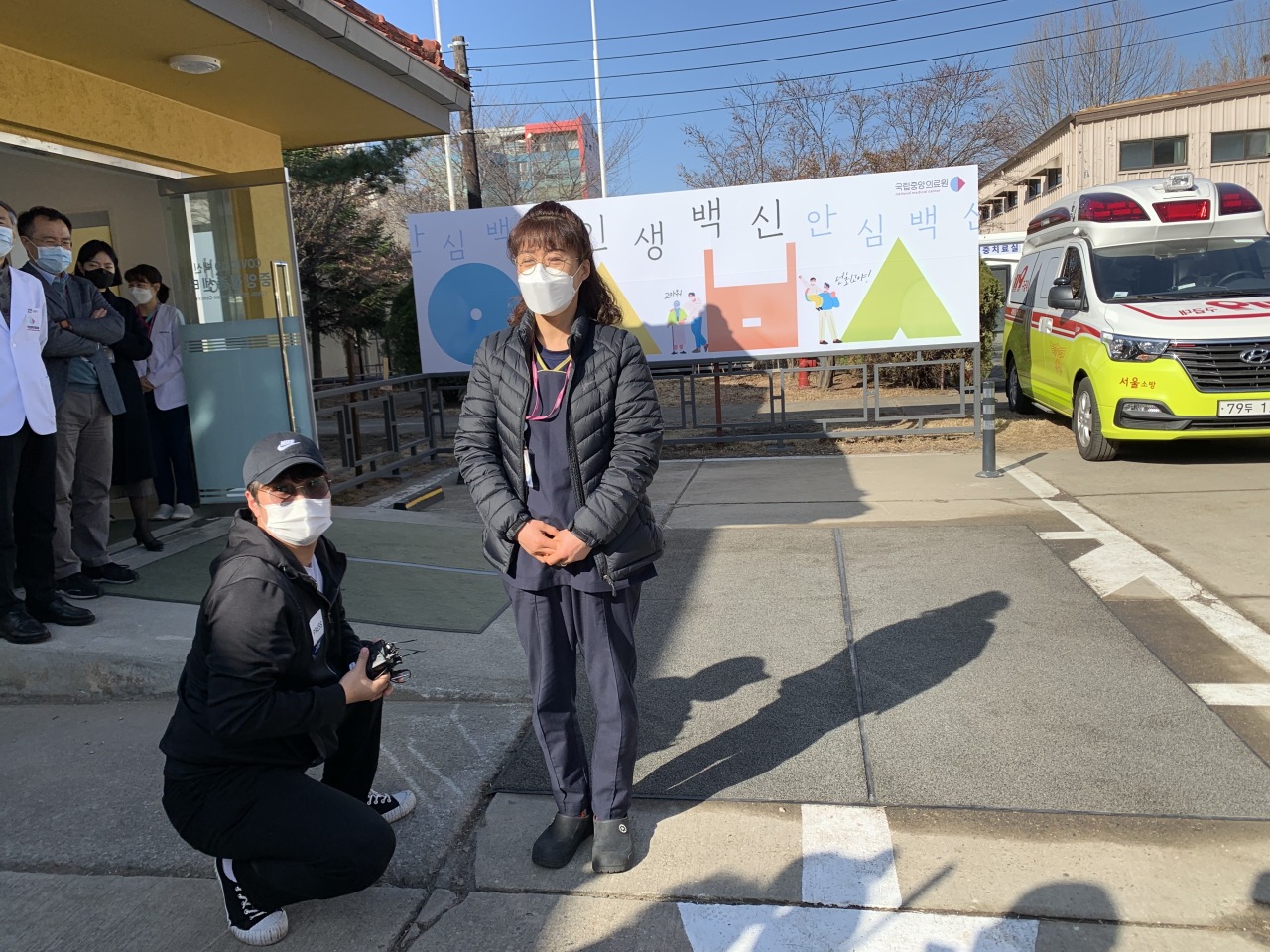
After many months, workers on the front lines of South Korea’s pandemic response are finally getting their COVID-19 shots.
On Saturday morning, The Korea Herald met a few of the recipients at the National Medical Center -- one of the select institutions in the country capable of managing the Pfizer vaccine, which must be stored at ultralow temperatures.
The first person in Korea to get a Pfizer vaccine was Jung Mi-kyung, 51, a member of the state hospital’s cleaning staff. Commenting on being the first recipient, she said it was “an honor.”
“I was nervous initially but it didn’t hurt like I thought it would,” she said.
“Since the vaccines are finally here, I hope they will help us get out of masks. I’d also like to be able to travel.”
Both of the nurses at the hospital who agreed to interviews said the Pfizer vaccine felt no different from a regular flu vaccine.
“I would even say it hurts less,” said Son Hong-suk, 28, who works in the intensive care ward with patients with more severe cases. When asked if he had experienced any unusual symptoms, he said no. “I feel great so far.”
He added that he hoped the campaign would speed up so that the vaccines could reach the general public sooner. “The vaccine’s about protecting each person from the virus, and eventually the herd.”
Cho Anna, 36, a head nurse in the intensive care ward, said she was “feeling safer” now that she was vaccinated. “Being vaccinated definitely makes me feel more relieved. And I’ll be taking care of patients until we can finally bid goodbye to this pandemic.”
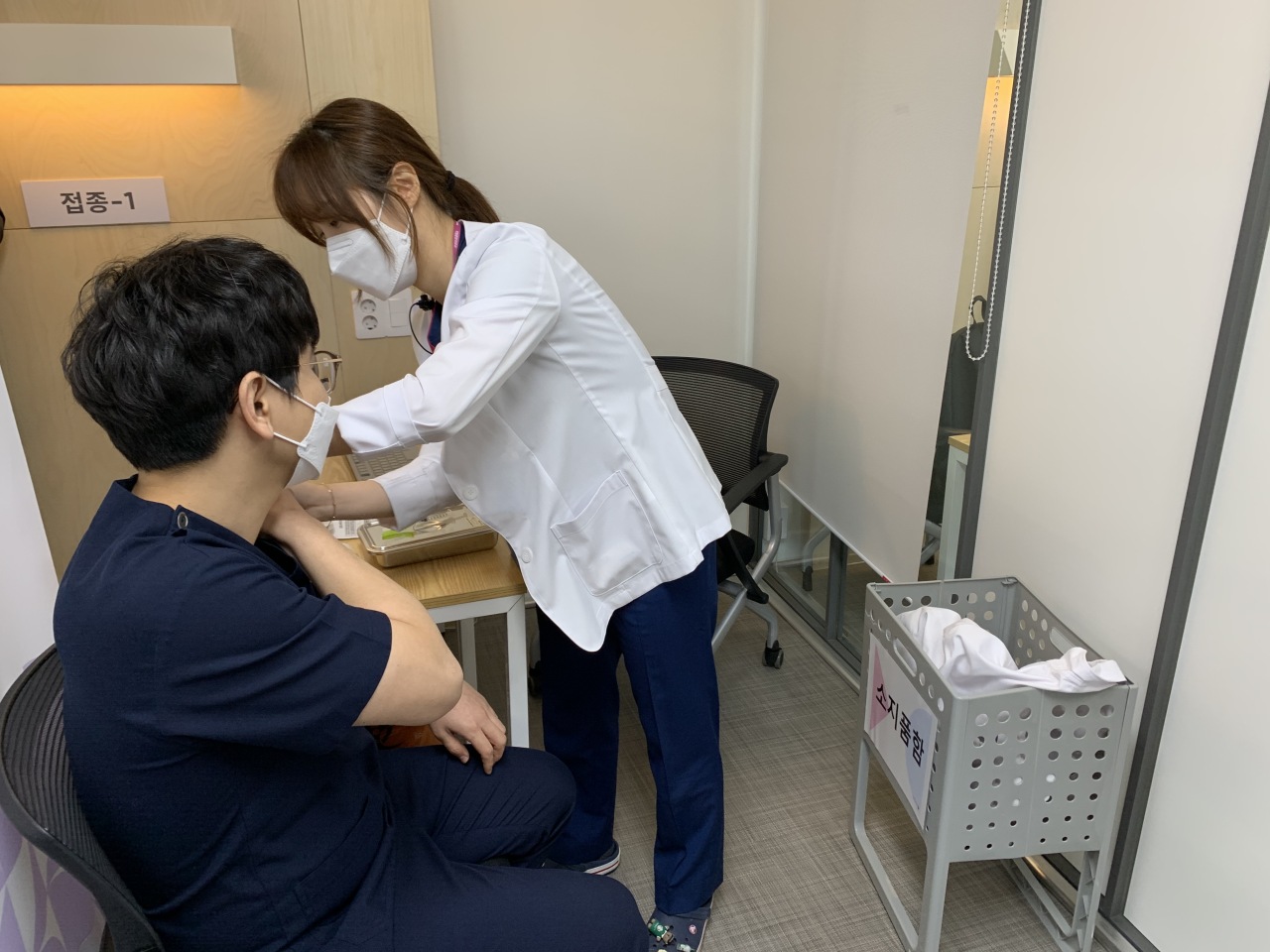
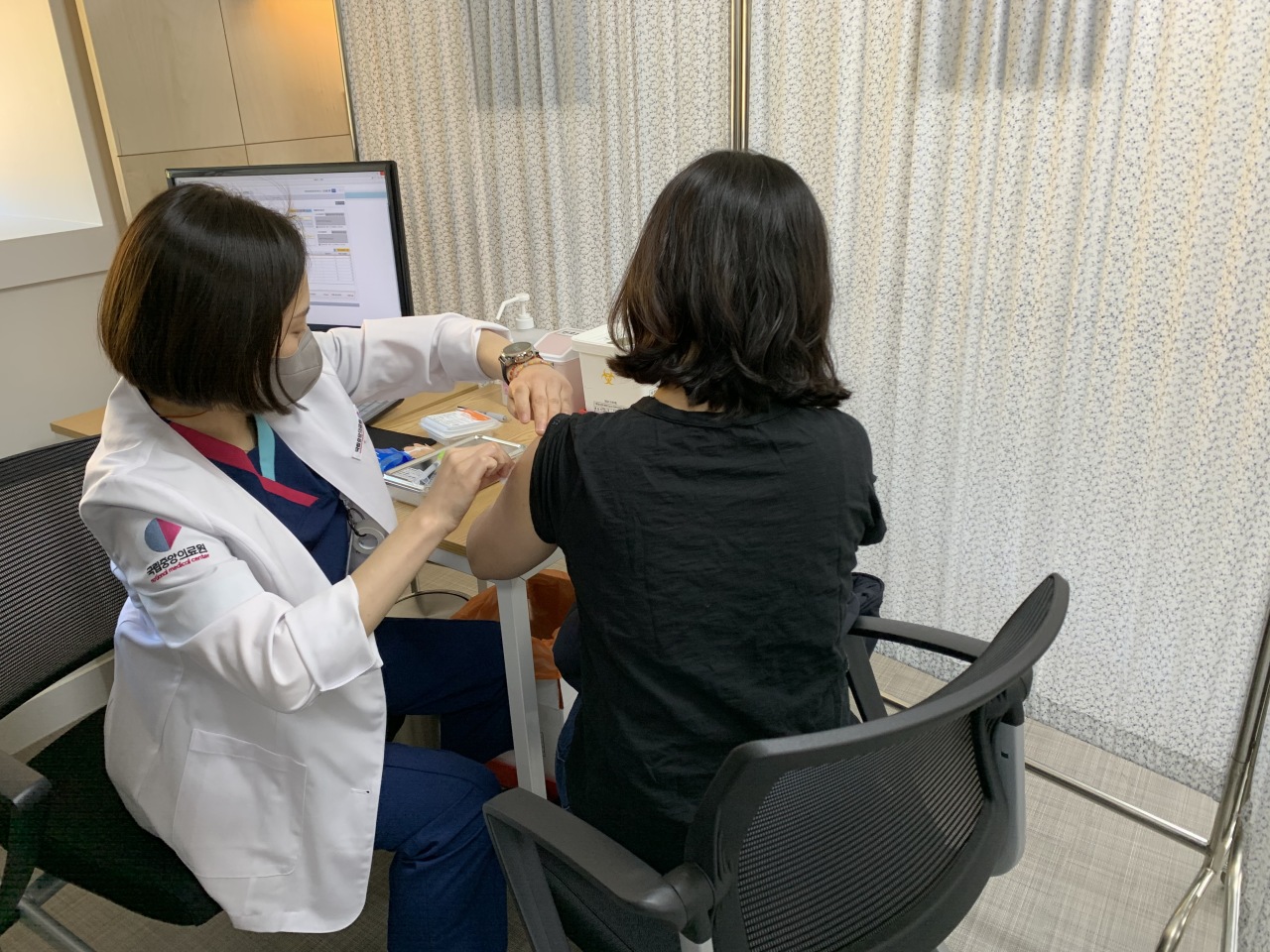
Inside the vaccination center, about a dozen people were waiting for their jabs.
Between now and the end of March, front-line workers will be getting their first doses of the Pfizer vaccine, which is administered in a two-dose series. The 117,000 doses of the vaccine -- distributed via World Health Organization’s global equity project, COVAX -- landed in Korea about noon Friday.
One of those who turned up Saturday was medical radiation technologist Oh Dong-jin, 39. He takes chest CT and X-ray images that help detect complications of COVID-19.
“When they asked me if I was going to receive the vaccine, I said yes with no hesitation,” he said.
“All my colleagues are eager for vaccines,” he said. “I’m grateful to be among the first in the country. For many months we only had face masks and other protective gear, and it’s nice knowing we’ll have an additional layer of protection from the vaccine.”
Choi Na-young, 31, the nurse who had been administering the vaccines all morning, said the Pfizer vaccine did “not seem to be much different from other injections” she had given.
“Except the special syringes we’re using for Pfizer feel smoother somehow. I feel like these syringes trap less air inside than normal ones.”
As a patient sat in front of her, it took less than a minute for Choi to clean the skin on his upper arm with a cotton ball, deliver the shot and bandage the injection site.
She instructed all the newly vaccinated people to avoid alcohol and hot showers for the next three days, and to inform the center’s personnel if they experienced dizziness or other symptoms.
Before receiving a shot, people are examined to ensure they’re fit to be vaccinated, she explained. On the screening and consent form, they are asked to specify any medications they are currently taking and whether they have ever had an allergic reaction to a vaccine.
According to another nurse, as of around 10:40 p.m. 72 people had received the Pfizer vaccine at the center -- all of them doctors, nurses and other hospital staffers. For the remainder of the day 148 more people were scheduled to be vaccinated here, she said.
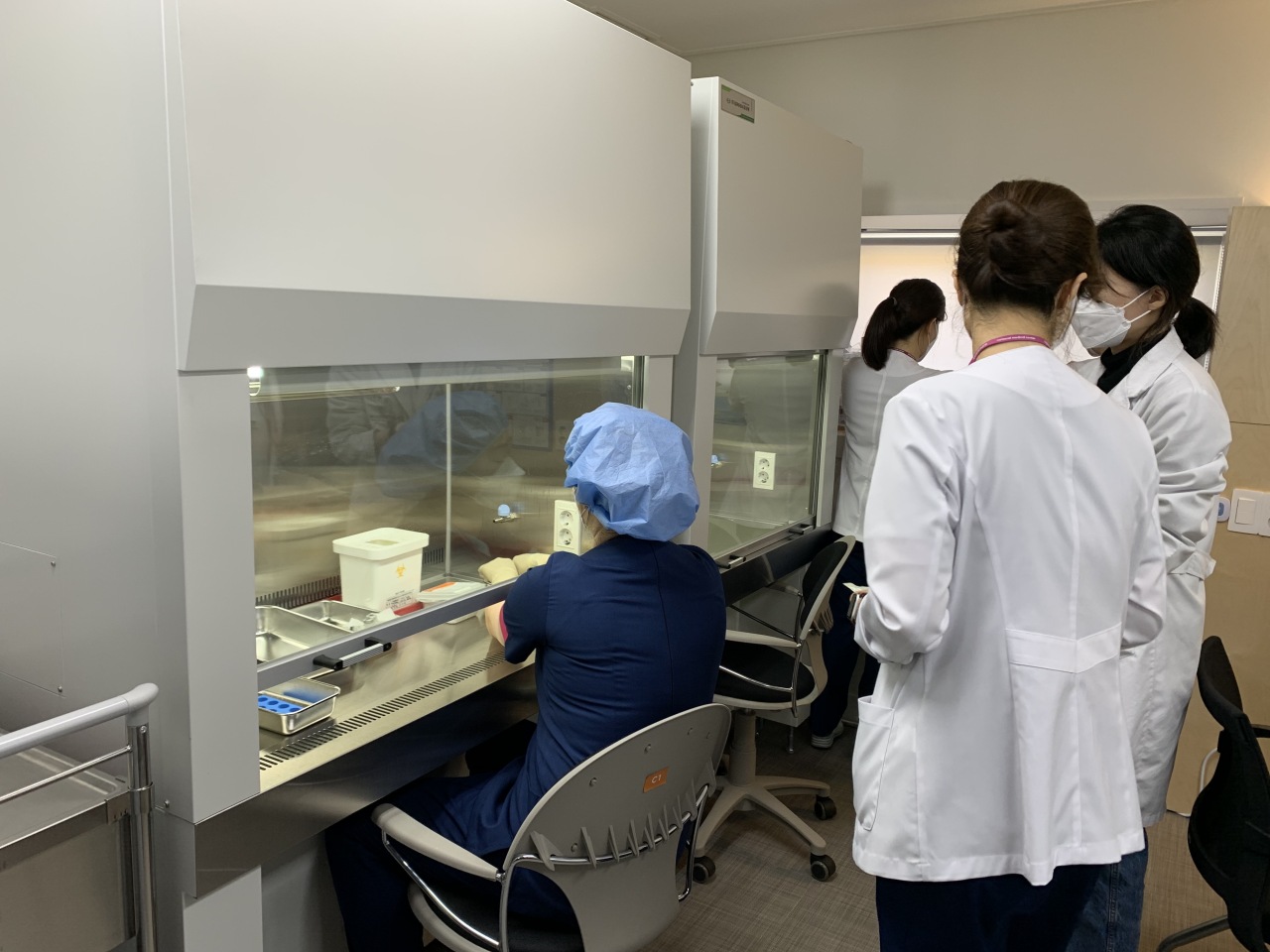
The Pfizer vaccine is by far the trickiest to prepare, and several rehearsals had taken place before the vaccinations started, according to the hospital’s infectious disease specialist Dr. Kim Yeon-jae.
“The vaccine has to be used within six hours since being thawed, then diluted. So there’s meticulous planning and handling involved to make sure no doses go to waste,” he said.
All those who have taken the vaccine, healthy and sick alike, must remain in the hospital for 15 to 30 minutes of postvaccination monitoring.
In the observation room, which is partitioned and well ventilated with open windows in every direction, people were seated at a distance from each other to undergo monitoring. The area can fit over 30 people at a time.
Next to the observation room is a first aid area with defibrillators, oxygen tanks and other equipment to be used in rare emergencies.
Dr. Oh Myoung-don, who is leading the hospital’s immunization program, called Saturday’s inoculations “a historic first step.”
“At the crux of a successful epidemic response is keeping our health care systems up and running. For that to be possible we have to protect the health care workers from infections. The vaccines are going to do that,” he said.
He went on, in a message to the public, “I think many are wondering which vaccine might be better than others. You can rest assured that all of the vaccines we are bringing in are safe and effective.
“So when your turn comes, make sure you get the vaccine that is available to you because it’s going to be the most vital tool that will help all of us get back to life before the pandemic.”
It’s estimated that the COVAX-supplied Pfizer vaccines will have been administered to some 55,000 workers on the front lines by mid-March.
COVID-19 vaccinations in Korea officially began Friday with the rollout of the AstraZeneca vaccine. On that day 18,489 people were vaccinated, according to the official statistics. For the time being, the AstraZeneca jabs will be reserved for nursing home residents and workers younger than 65.
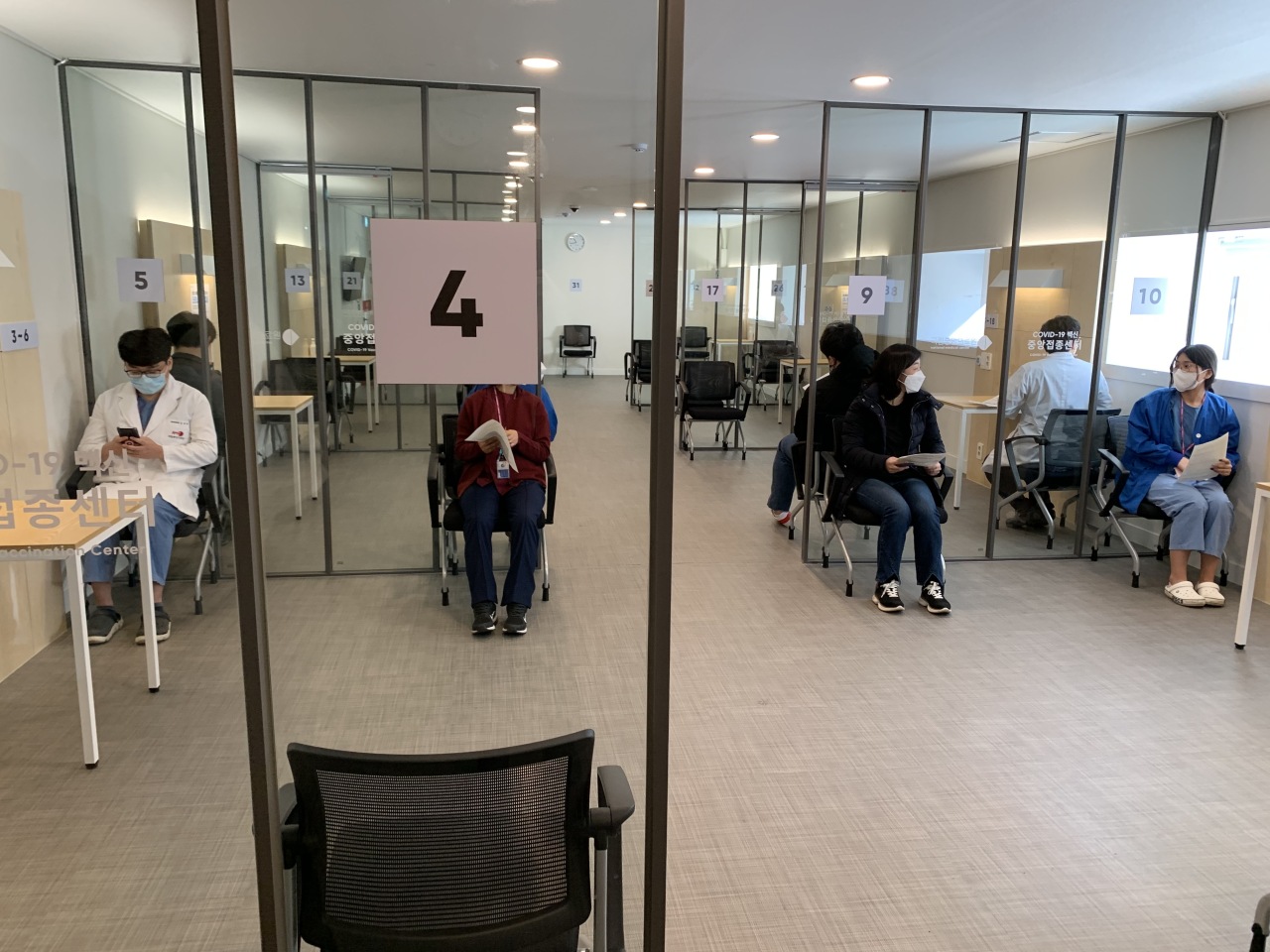
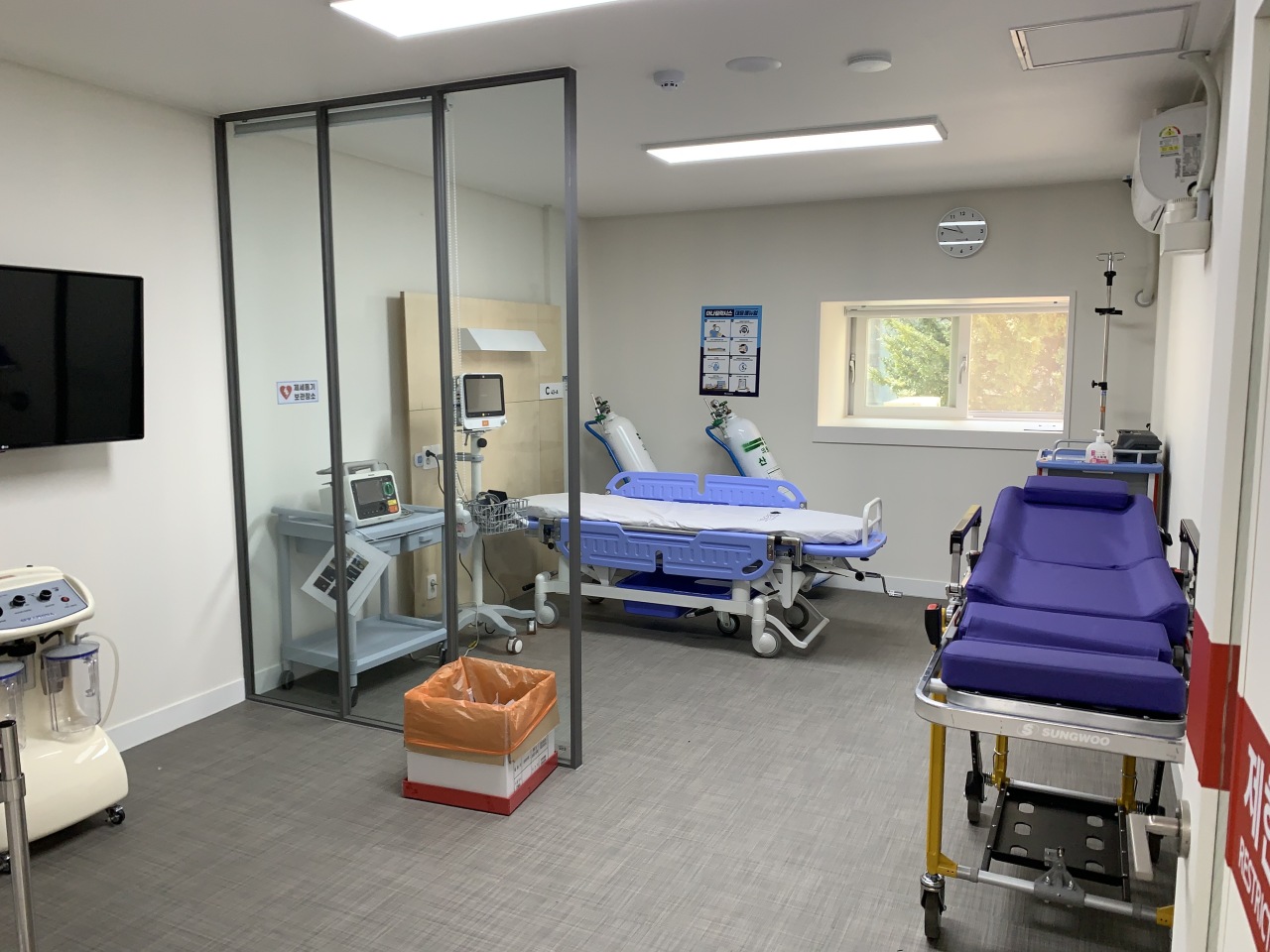
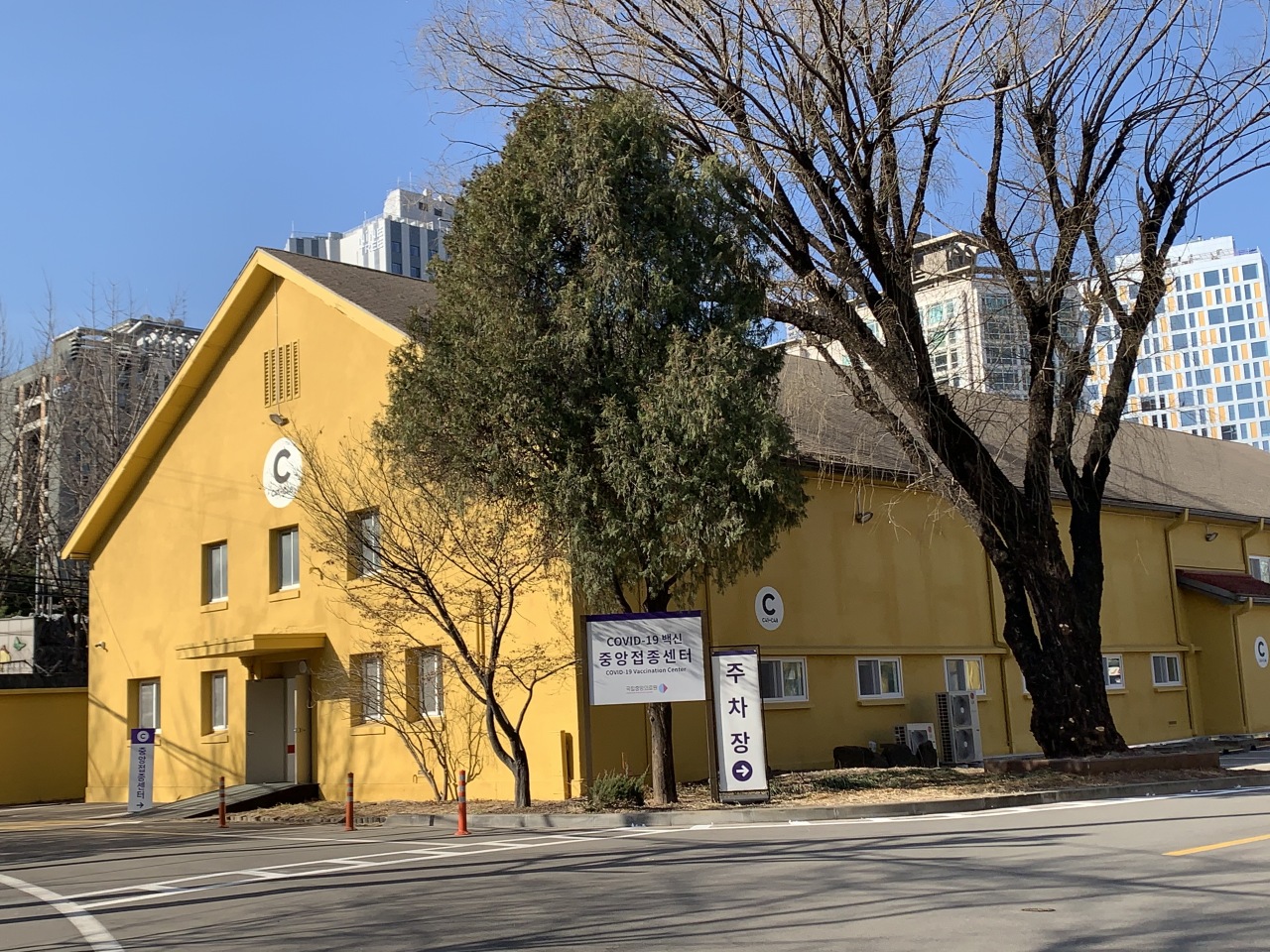
By Kim Arin (arin@heraldcorp.com)








![[Graphic News] More Koreans say they plan long-distance trips this year](http://res.heraldm.com/phpwas/restmb_idxmake.php?idx=644&simg=/content/image/2024/04/17/20240417050828_0.gif&u=)
![[KH Explains] Hyundai's full hybrid edge to pay off amid slow transition to pure EVs](http://res.heraldm.com/phpwas/restmb_idxmake.php?idx=644&simg=/content/image/2024/04/18/20240418050645_0.jpg&u=20240419100350)






![[From the Scene] Monks, Buddhists hail return of remains of Buddhas](http://res.heraldm.com/phpwas/restmb_idxmake.php?idx=652&simg=/content/image/2024/04/19/20240419050617_0.jpg&u=20240419175937)

![[KH Explains] Hyundai's full hybrid edge to pay off amid slow transition to pure EVs](http://res.heraldm.com/phpwas/restmb_idxmake.php?idx=652&simg=/content/image/2024/04/18/20240418050645_0.jpg&u=20240419100350)

![[Today’s K-pop] Illit drops debut single remix](http://res.heraldm.com/phpwas/restmb_idxmake.php?idx=642&simg=/content/image/2024/04/19/20240419050612_0.jpg&u=)